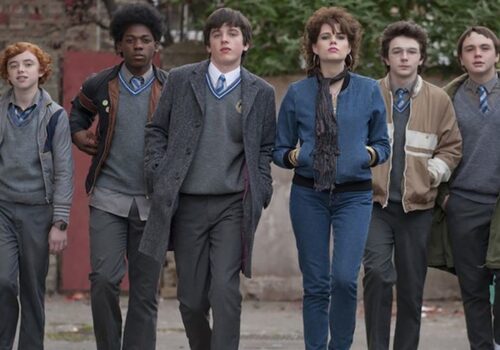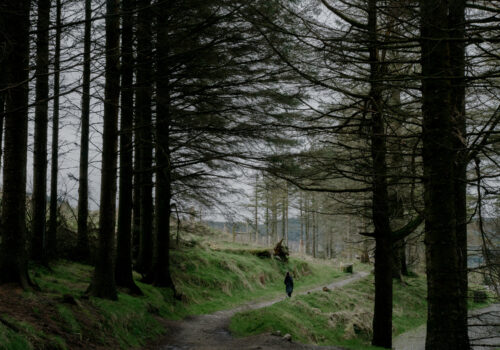Dublin activists seek to Reclaim The Night
On 12 January 2022, Ashling Murphy was attacked and killed while jogging along the Grand Canal just outside Tullamore, County Offaly. A month later, a group of activists gathered at the end of Grafton Street to protest what appears to be an Irish epidemic of gender based violence.
District sat down with Kate Glen, one of the founders of Reclaim The Night Dublin, to find out more about the protest and to discuss her perspectives on misogyny and violence in Ireland.
“The first thing that inspired me to start a protest was my experience with similar protests in Scotland,” Kate explained. “It was on a different level though, it was on a communal level. I’d never seen anything like this before. It was something nice to do that ensured our safety while out and about.”
Kate is currently a post-graduate in Trinity College Dublin. Alongside Olivia Daly, a fellow postgrad in Trinity, she started to devise plans to stage a protest in response to the murder of Ashling Murphy and gender-based violence in Ireland.
“Every girl I’ve talked to is so angry. So scared and sad, but also furious. And that is why I wanted to do a demonstration because this isn’t an isolated case. It’s part of a wider pattern. There was Urantsetseg last year in the IFSC and she didn’t get half the protests she deserved.”
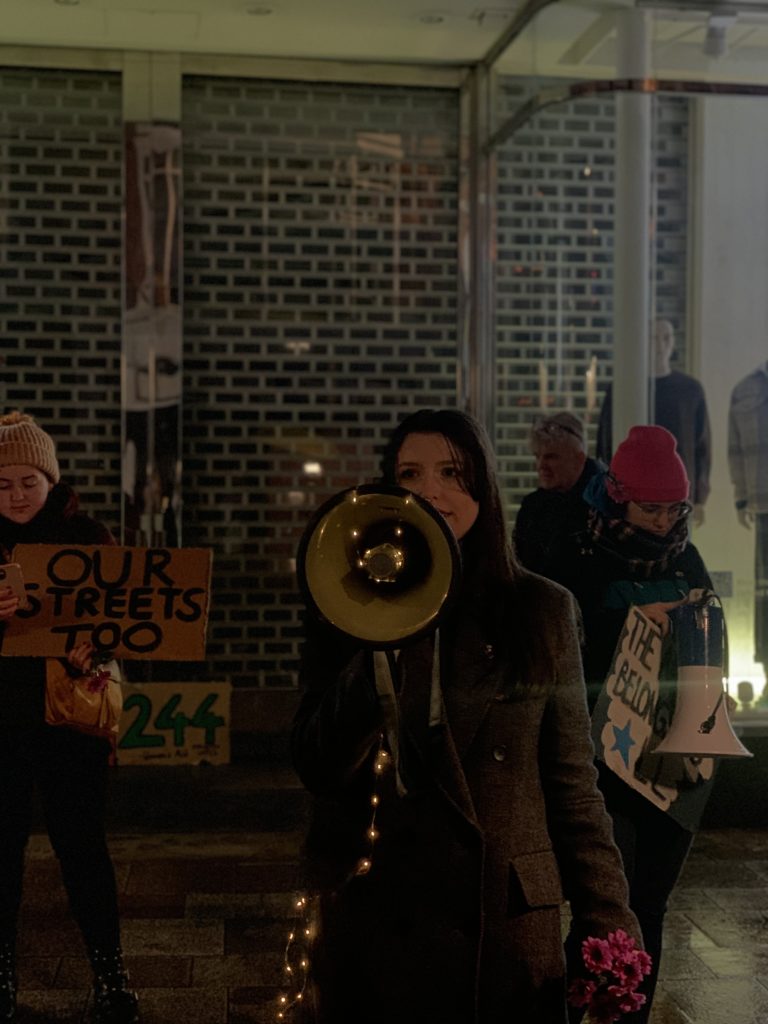
Kate points to reports of attacks on women as proof that misogyny can be engrained in the media. “If you look at the headline that appeared on a news site earlier this week that mentioned the “remarkably high IQ” of a man who sexually assaulted two women, you can see that people are still trying save abusers in the public sphere.”
The article in question, which was titled “Man with ‘remarkably high IQ’ sentenced for sexually assaulted of two women at house party”, has since had its headline changed on the Armagh I website. The news site was called out by Fixed It Ireland, an organisation that documents non-femiminist Irish headlines.
According to Kate, the legal system and lack of convictions and punishments for sex offenders in Ireland also contributes to Ireland’s culture of misogyny.
When asked if the protest will be a repeat occurrence, Kate asserts that at the very least, she wants it to be an annual affair. “It is ever-present, I think the media is choosing to focus on attacks on women more than usual because of what has happened recently,” said Kate. “There is a list of demands that can be made and should be made through marches like this. We need better street lighting, we need to be able to report incidences of assault or harassment without the fear of being turned away.”
“I don’t want to have to carry weapons or constantly look over my shoulder. I don’t want to be scared anymore. And I am so angry that being scared is supposed to be normal for women while walking at night.”
Kate Glen
According to Women’s Aid Ireland, there were 43,500 calls to respond to domestic abuse incidents in 2020, as well as 24,686 incidents of domestic abuse reported to An Garda Síochána in 2021.
Lest we forget, in 2021 it was brought to light that over 3,000 domestic abuse calls were marked as ‘cancelled’ and ignored by Gardaí. Even in the cases where they were allegedly marked as cancelled by accident, when gardaí called to domestic violence victims’ homes, they failed to follow procedures for dealing with such cases. They did not make further checks, either phone calls or visits, to the victim in the days that followed. In some cases when domestic violence victims called 999 they received no response and their calls were cancelled without reason.
Approximately 52 per cent of women killed in Ireland since 1996 were murdered by a boyfriend or former partner.
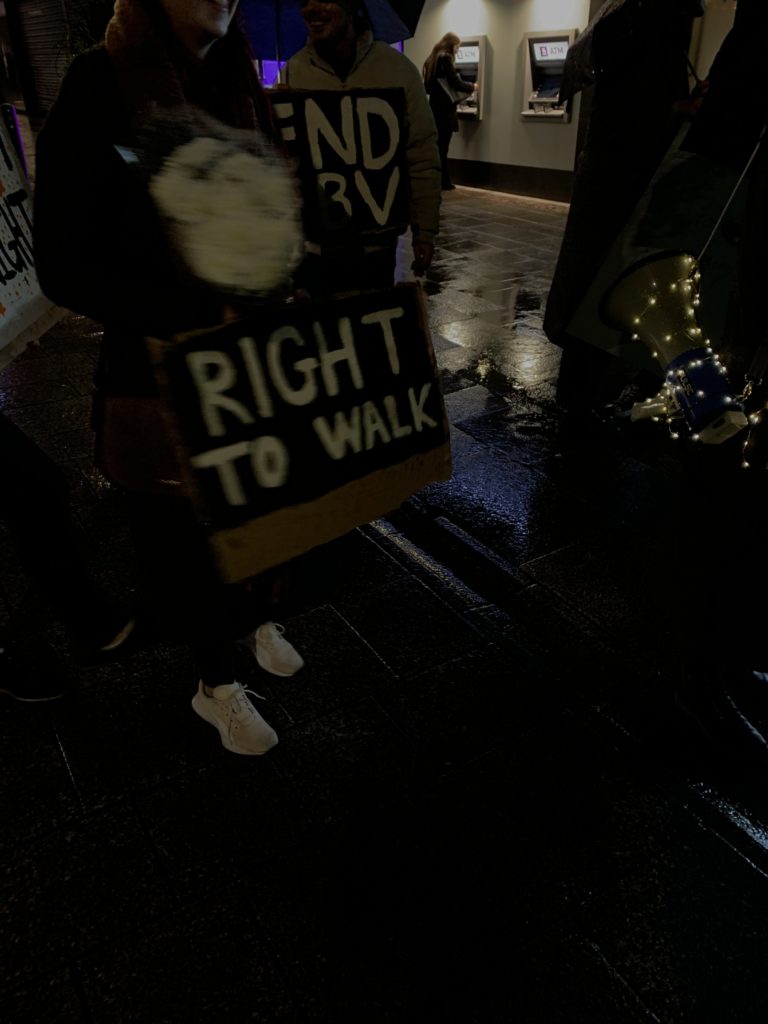
When asked if she thinks gender-based violence is being used as a political pawn in Ireland, Kate has mixed feelings on the issue: “I think in the case of Ashling Murphy, there were a few incidences of parties canvassing or advertising on their social media that they thought her murder was awful. But it needs to be a constant effort rather than jumping on the bandwagon. I hope with our protest that no one turns up with a banner or anything because this is a non-partisan issue.”
“My fear is that Ashling Murphy’s death turned into a photo-opportunity for Irish politicians. They showed up, said gender-based violence is bad but now they’ve faded into the background.”
Kate Glen
In late January of this year, the Department of Higher and Further Education published the findings of their survey on sexual violence and harassment in third level education. With over 8,000 student participants, it provided a startling insight to the reality of sexual assault on college campuses.
14 per cent of students said someone had oral sex with them while they were incapacitated and unable to give consent, seven per cent said they had been physically forced into oral sex.
34.2 per cent of female students had experienced vaginal rape through coercion, incapacitation, force, or threat of force.
Despite these horrifying numbers, the department focused on the result of the survey that indicated the majority of students “feel safe” reporting these incidences, and Minister for Higher Education, Simon Harris, began his statement by welcoming the “positive developments” indicated by some survey results. Dr Pádraig MacNeela, the academic leading the analysis of the report responded in the same way.
For context, 79 per cent of male students reported feeling safe socialising at night on campus, compared to just 22 per cent of female students. Just over half of female students said they even felt safe during the day.
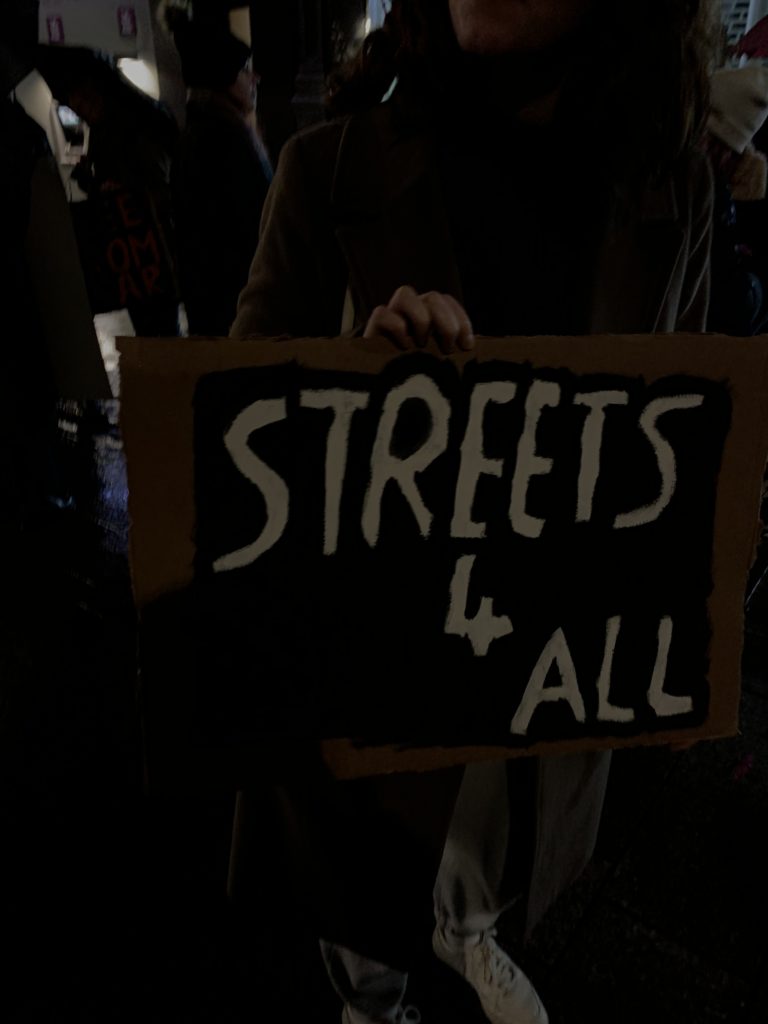
The protest itself took place during a particularly damp Dublin evening. The cold February wind and rain brushed against the protestor’s posters and banners as they made their way to the Custom House Quay. Outside the Custom House, flowers were laid in memory of Urantsetseg Tserendorj, who was stabbed beside the CHQ building at 21:30 on January 20, 2021. Two weeks later, she died in the Mater Hospital as a result of her injuries.
Representatives from Dublin University Gender Equality Society and the Institute of Art, Design and Technology Dun Laoighre were present at the protest, amongst other activists and participants.
Current IADT SU president, Eoin Hicks Smyth, briefly commented on how he hopes Irish society at large will change: “There’s so many root causes. And I suppose all you can hope for is that the people who are here today will become the voices for tomorrow. Dismantling how we perceive violence, dismantling misogyny is so important.”
Reclaim The Night Dublin simply aims to allow women to walk through the capital without fear. Attendees at the protest remarked how strange it was to be able to be in the city centre at night and not feel scared.
The initial protest has inspired other colleges, such as NUI Galway, to put on demonstrations of their own. NUIG will be marching on February 23 to protest against gender-based violence in Ireland.
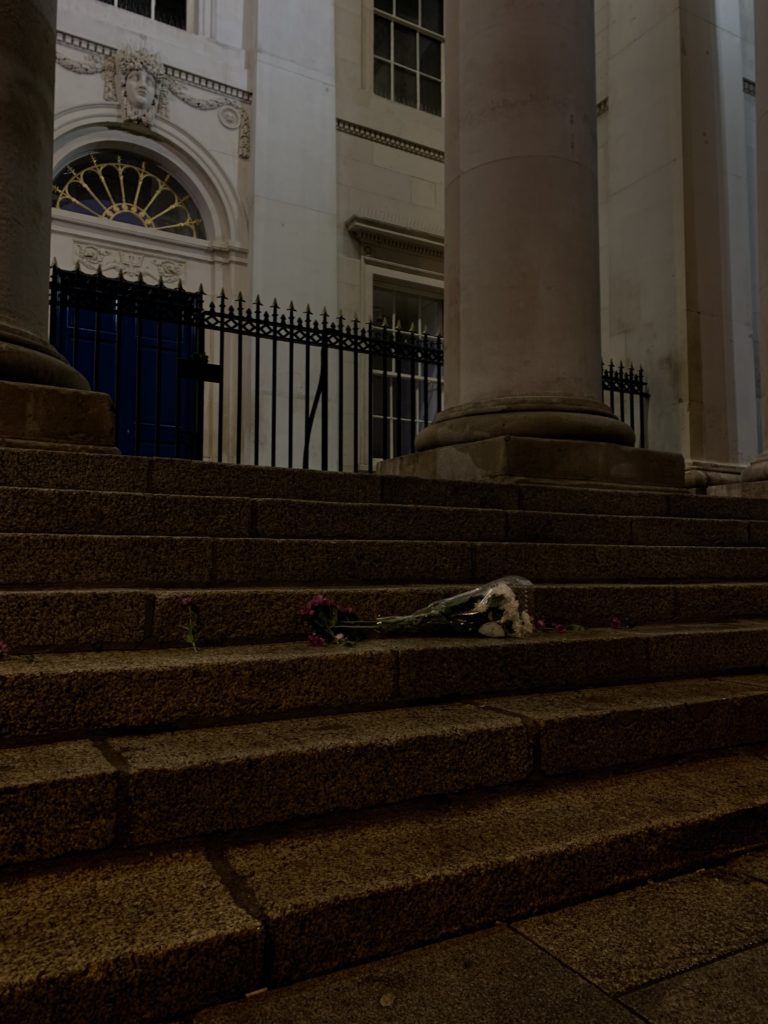
For more information on upcoming events with Reclaim The Night Dublin, click here.
Elsewhere on District: 22 Questions for 2022: Life & Society

